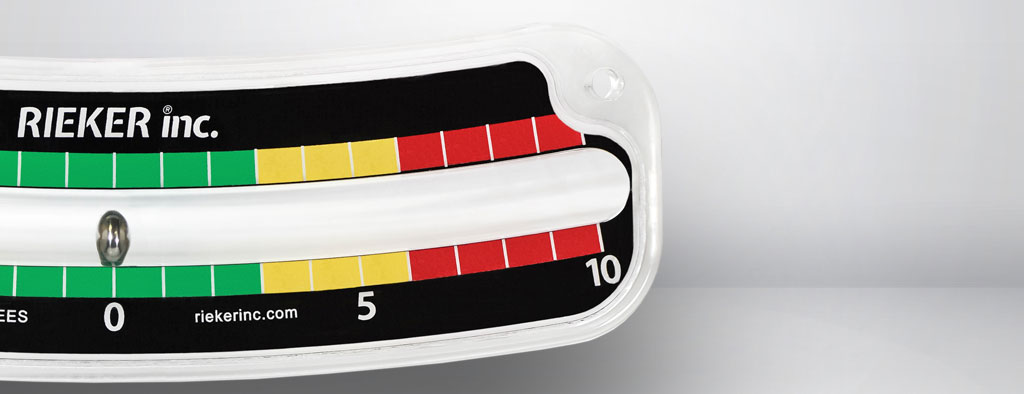Vendor fraud has become a significant issue in the business marketplace, and we’ve noticed an alarming increase in its prevalence. Please be informed that Rieker has never issued a Purchase Order (PO) using private email addresses such as Gmail, Yahoo, or iCloud. This is a crucial measure to ensure the utmost security for our prospective vendors. Please note that it’s rare for Rieker to open POs with unauthorized vendors requesting net 30 terms. Therefore, if you suspect that you may have received a suspicious PO, please don’t hesitate to contact our main number at (610)-500-2000 to verify the authenticity of the PO.
For a first time PO, please contact us directly via purchasing@riekerinc.com for confirmation as an added precaution.
Rieker High Accuracy Inclinometers Application
Mechanical Inclinometers |
Electronic Inclinometers |
|---|---|
| Rugged. Reliable. Built for precision.
Our mechanical high-accuracy inclinometers feature: |
Advanced digital tilt sensing.
Our electronic inclinometer solutions include: |
| Glass or polycarbonate tube and ball construction | Digital clinometers and tilt switches |
| Customizable fluids for various sensitivities | Waterproof inclinometers for deep-sea and submerged applications |
| Color-coded warning zones for visual tilt indication | Hazardous location inclinometers built for environments with extreme pressure, temperature, explosive gases, and particulates |
| Optional backlighting for enhanced readability | Wireless/Bluetooth options for remote monitoring |
| Accurate performance with no moving parts |
Applications for Rieker Inclinometers
Our precision inclinometers are trusted in a wide range of applications, including:
- Aircraft slip indication and fuel system attitude calibration
- Sailboat heel and trim monitoring
- Civil engineering and structural health assessment
- Heavy equipment leveling and grading in construction
- Industrial automation and process manufacturing
- Military platforms, vehicle stabilization, and defense solutions
- Hazardous environment monitoring and compliance
- Underwater and subsea operations in marine and offshore settings
- Slope warning systems and tilt safety enforcement
Where precision and durability are essential – Rieker delivers.
Why Choose Rieker?
- Over 100 years of inclinometer innovation
- Temperature-compensated (electronic models) and engineered for thermal stability (mechanical models)
- Customization options for your specific application
- Rugged durability with high-accuracy performance
- Proudly engineered in the USA and manufactured globally
MPI – Multi-Output Precision Touch Screen Inclinometer
The MPI (Multi-Output Precision Inclinometer) is a versatile, handheld or mountable measurement solution with a full-color sunlight-readable capacitive touchscreen and configurable output options. Built for high-precision angle measurement in dynamic environments, the MPI combines user-friendly interaction with Rieker’s proven tilt sensing technology.
Key Features and Benefits:
- Single or Dual Axis measurement with ±180° range
- High-resolution display: 0.01°, 0.1°, or 1° resolution
- Real-time visual alerts with configurable green/yellow/red trip zones
- Multiple output options: Analog Voltage (0–5VDC), RS232, RS485, and Relay Switches
- Bulls-Eye Bubble Level Mode for leveling applications
- Rechargeable lithium-ion battery for portable use
- Graphical interface showing min/max angles, zeroing, orientation, and more
- Magnetic or permanent mounting plates included for flexible setup
- Durable anodized aluminum housing rated IP65
Ideal for applications in rollover detection, pitch/roll monitoring, slope angle measurement, platform leveling, and more.
Learn More About the MPI Inclinometer


